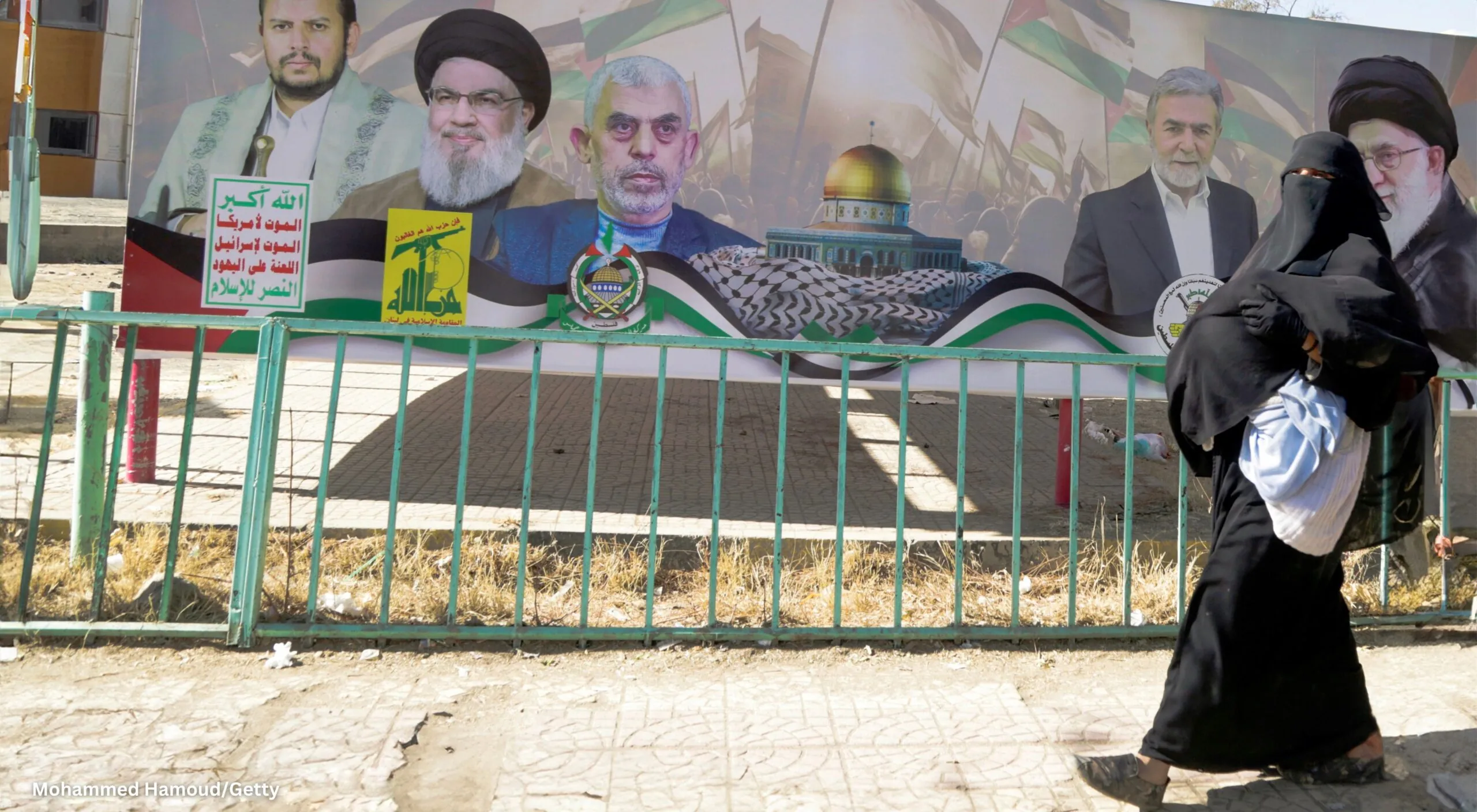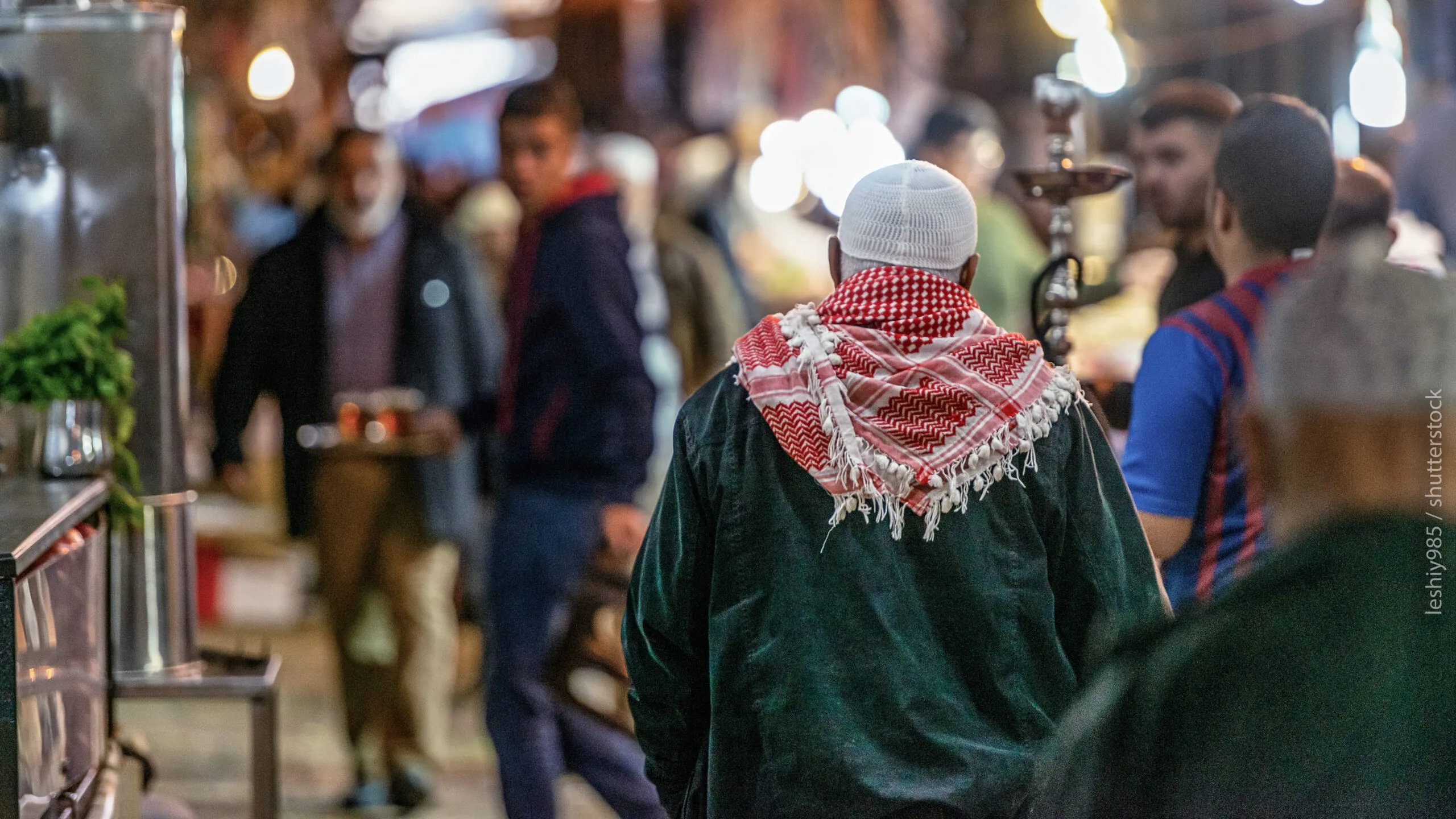
By Saleem Shalash as told to Shani Sorko-Ram Ferguson.
It was a heavy moment when I finally admitted to myself, as a Christian, I am. I, as part of the Church, am grafted into this beautiful gift of life, but I have cut ties from my brother Israel. I have accused my brother and in all my self-righteousness I have refused to enter into a deeper place with the Father.
My name is Saleem and I was born in Nazareth in 1975 into a devout Catholic family. In Arab culture, the passing on of the family name is crucial, which is why my parents rejoiced when I and my twin brother were born after five sisters. My father’s dream was for his son to become a priest. And so, at age 12 I began serving the priests at the local Catholic cathedral.
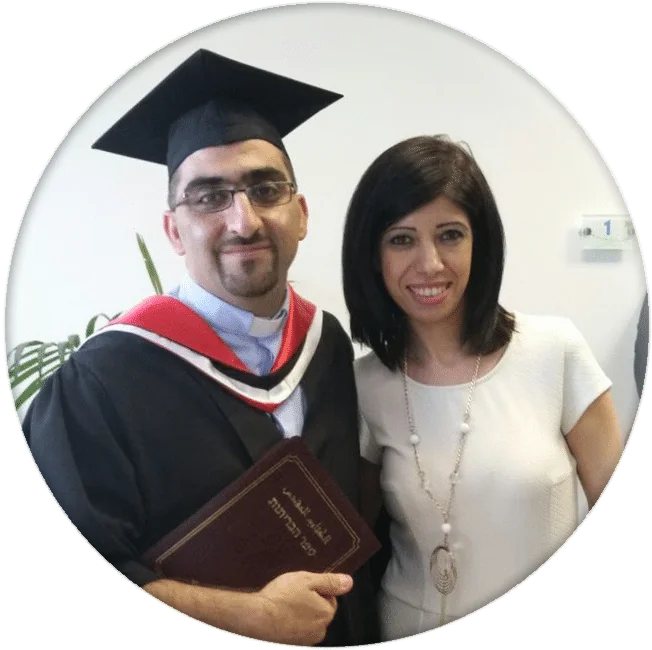
Saleem and his wife at his graduation
I served for 5 years, carrying the cross down the aisle in the services and learning the religious routines and liturgy by heart. But being behind the scenes in the church I also saw the hypocrisy of it all. Struggling people—and conflicts—were handled without the love and respect that was taught from the pulpit.
And yet, every week, no matter what was happening behind the scenes, we sang the same songs and said the same prayers. It was all about traditions, and not about the people. So at 17 I said to myself, “If this is God, I don’t want Him.”
Once I finished high school, I studied in the Hebrew university becoming a licensed travel agent, and eventually, a hotel manager.
It was during my time in university that my life would change forever. August 6, 1994 was a fateful day for me when I learned that Nisreen, one of my dear friends, had been killed in a freak car accident. Nisreen was driving next to a truck when huge tubes of iron fell off the truck and rolled over onto her car crushing it and causing the car to explode. She was burned alive.
The whole event shook me to my core. We were both the same age. She was a true believer in the Lord, so how could her life be taken like this at 19? It was like time and space stopped, and I saw my life. I realized I was busy pursuing my own long-term business plans, but there was no guarantee I ever would grow old enough to fulfill them. My mind turned to deep questions about life after death. It was the first time since I had left my church that I turned my thoughts toward God again. It was like He was waiting for me all this time and as soon as I turned my thoughts to Him, He was ready to speak. I don’t know how to explain it, but God spoke to me explaining how Nisreen’s physical body died, but her new life had just begun.
That day I gave my life to the Lord and began attending a local Nazarene church. They gave me a Bible. At first, I was scared. I had always been taught I was not holy enough to hold a Bible, let alone read it myself. Only the priests could touch and read the Bible. But this was a new day, so I decided I would dare to take the bold step of reading this most significant Book. Still, I only read the New Testament. The Old Testament belonged to the Jews and I didn’t want anything to do with them.
Wanting to expand my understanding of the Gospel I attended a well-known school among Israeli Arabs—Bethlehem Bible College—and earned my bachelor’s degree. As I was finishing up my degree, I met a man who offered me a free scholarship to the Israel College of the Bible about thirty minutes north of Tel Aviv. I loved academics and had always worked hard to earn my education. How could I turn down an offer to earn a master’s degree for free?
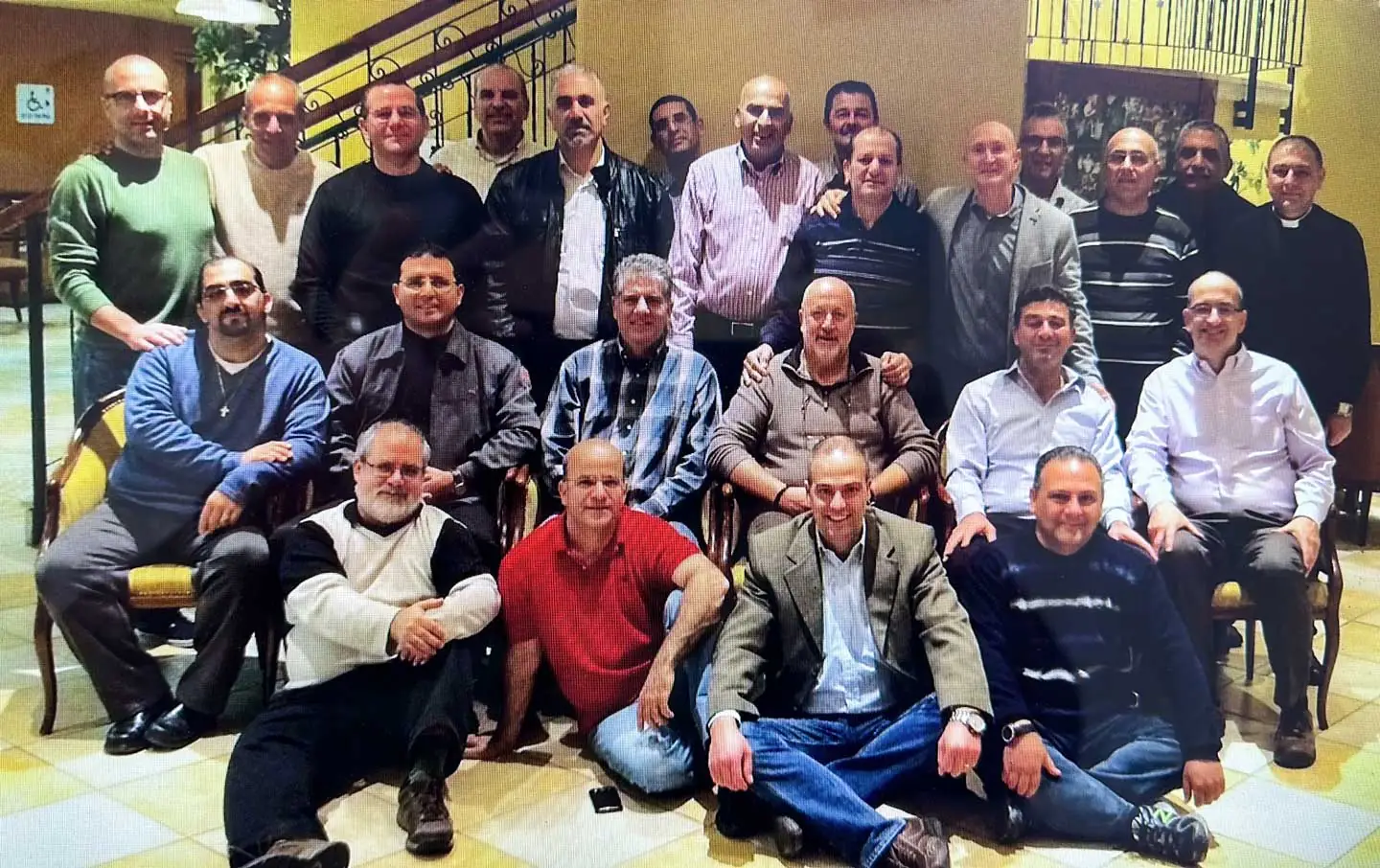 My enthusiasm was cut short as I arrived the following semester and was greeted by 12 Arab pastors and 12 Jewish pastors who would be studying with me. I became very angry. On a political level I had always absorbed the Arab media that taught me to hate Jews. And on a theological level I had always been told Jews crucified my Savior. I wanted nothing to do with them. There was never any connection in my mind between the beloved Israel of the Bible, and the Jewish people I lived among in Israel today.
My enthusiasm was cut short as I arrived the following semester and was greeted by 12 Arab pastors and 12 Jewish pastors who would be studying with me. I became very angry. On a political level I had always absorbed the Arab media that taught me to hate Jews. And on a theological level I had always been told Jews crucified my Savior. I wanted nothing to do with them. There was never any connection in my mind between the beloved Israel of the Bible, and the Jewish people I lived among in Israel today.
“Are you bringing Jewish rabbis to study here with me? Are these rabbis then going to teach Christianity?” I thought to myself angrily. When they explained they were Jewish believers in Yeshua, I couldn’t comprehend there was even such a thing, but I acquiesced.
However, even after a year of studying with them I still felt no affection for my fellow Jewish peers. At the end of the school year, I was asking the Lord, “Why did You bring me here?” It was during a quiet time I was spending with the Lord that His answer unfolded before me as I read through the Parable of the Lost Son.
I considered the story as I read through it several times asking myself a list of questions: “Who is the lost son in the parable?” was the easy one. It must be the Jewish people. They had their chance and they abandoned God.
“Who is the older brother in the story?” was a little more challenging for me to decide. At first, I concluded, “I don’t know but it doesn’t really matter. The older brother is not the focus of the story.”
Still, I felt compelled to read the parable over and over:
“The older brother became angry and refused to go in. So his father went out and pleaded with him. But he answered his father, ‘Look! All these years I’ve been slaving for you and never disobeyed your orders. Yet you never gave me even a young goat so I could celebrate with my friends. But when this son of yours who has squandered your property with prostitutes comes home, you kill the fattened calf for him!’”
The more I read the more I began considering sins exposed by the older brother’s angry reaction that made his transgressions worse than that of the lost son who had left and returned home humble. I found seven.
- “These many years,”—the older brother claimed, counting his years of service to his father just as slaves count their years of service before they are set free.
- “I have served you,”—he presented his activities while living in his father’s house as if he was doing his father a favor rather than being honored to serve.
- “I have never disobeyed your orders,”—he displays his attitude of spiritual arrogance and self-righteousness.
- “You never gave me a goat,”—he felt as though he lived as a poor man in the abundance of his father’s house.
- “To celebrate with my friends,”—he felt unable to find joy and satisfaction among friends in his father’s house.
- “Your son,” not “my brother”—he disassociates and cuts ties with his own sibling.
- “Squandered your money...”—accuses and judges his brothers, rather than forgiving as the Father had.
This parable was very eye opening to me as I once again considered the question, “Who is the older brother?”
It was a heavy moment when I finally admitted to myself, as a Christian, I am. I, as part of the Church, am grafted into this beautiful gift of life, but I have cut ties from my brother Israel. I have accused my brother and in all my self-righteousness I have refused to enter into a deeper place with the Father.
And yet, I felt hope in the story. I found it interesting that the parable was open-ended. How the older brother responded to the Father’s gentle rebuke and invitation was for each of us to decide. Would I enter into the Father’s house and celebrate? Or would I choose to stay outside?
My animosity toward the Jewish people was so strong, I told the Lord, “I can’t do this by myself; I need help.” Suddenly, it was as if 5 refrigerators lifted off my shoulders and my heart cried out, “I release and I forgive!” It was a moment of deliverance from hate and I was overwhelmed with joy as I realized I had been granted the freedom to love.
It was a moment of awe and wonder for me when I understood that I wanted Israel to still be a part of the story—because they were proof of God’s faithfulness. If God got tired of Israel’s disobedience and switched to the Church, what assurance did I have that God would not get tired of the Church—tired of my shortcomings and move on to something else? But if His promises to them were as sure as the stars in the sky, His promises to me would be just as steadfast.
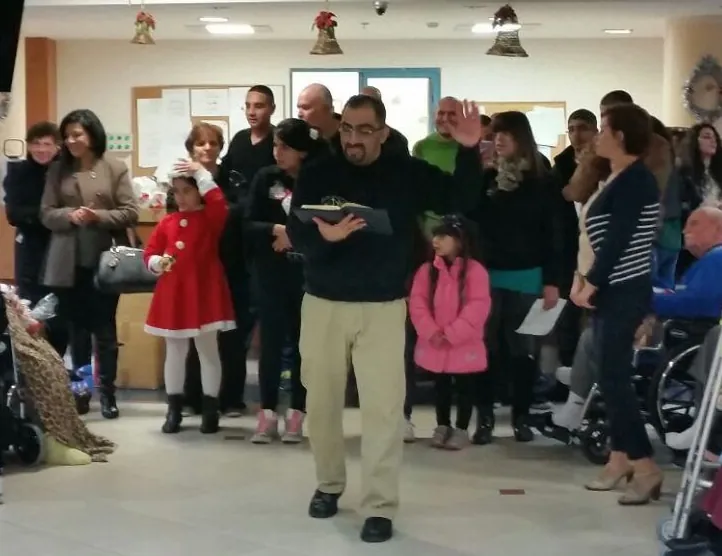
Saleem sharing the Bible at an assisted living facility
After this encounter, I began my second year of studies at the ICB. It was like being born again—again! For the first time, I began embracing all of God’s Word including the Old Testament as a part of my Bible. How wonderful it was to have so much more of God’s story with mankind available to me. I could freely enjoy the entire book given to me as a gift of love and wisdom for my life.
As I read through the ancient stories of my younger brother Israel, my favorite thing was finding Yeshua in the verses of these “Old Testament” books written by Jews. Ironically, only after this experience of deliverance from hatred as I was getting my second master’s did I fully grasp the fact that the New Testament was also written by Jews. In embracing Yeshua and reading the New Testament, I was experiencing blessings from the Jewish people even without knowing it, and while I still hated them.
Even more so, reading the Scriptures was no longer just about me and my relationship with God—but understanding God’s plan for the ages—in which Israel had a crucial part to play!
When it came time to complete my doctorate I studied online through a school in Los Angeles and flew there to discuss my thesis once it was complete. It was a difficult time of juggling family, school and ministry, but I was determined to do it. I studied every night between 11pm-2am and within one year completed my thesis which was entitled: How does the Arab Israeli conflict influence Christian theology about Israel? It bothered me that a modern political situation could affect how we understood God and His ageless Word—but it was clear to me that it did.
I finished up my thesis with two questions. First, “Why does Israel still exist?” Powerful forces like the Crusaders and the Roman and Babylonian empires dissolved into the pages of history while this tiny people group had been ripped to shreds across the globe for thousands of years and yet here they were, back in their land of origin with their original language and Book.
I concluded that it was not because of how amazing they are—it is simply because God promised it would be so and God’s promises cannot fail. And this is the type of God I wanted to serve.
My second question was, “Why do we say God rejected His people? Because they disobeyed Him? But, are we any better?” We know no one is worthy in and of themselves. So rather than condemning the ‘Nation of the Covenant’, we should rejoice that we are grafted into a covenant where we can receive forgiveness of sins and be allowed into the presence of God.
Because the term “Israel” is historical, spiritual and political today, I knew in writing this thesis many Arab leaders would see me as a traitor—maybe even a spy—because I was standing with “Israel.” On the other hand, the Orthodox Jews would always see me as an Arab, at best a second-level citizen and at worst a potential terrorist.
But sometimes you must be the black sheep caught between two of the most stubborn people groups in the world. I had long rejected the idea of being a pastor because I knew the suffering that would come with it. Being a pastor in Israel would be difficult enough because just living in the country is difficult. It becomes even more complicated to be an Arab pastor who loves Jews. But of course, that was exactly what God wanted from me.
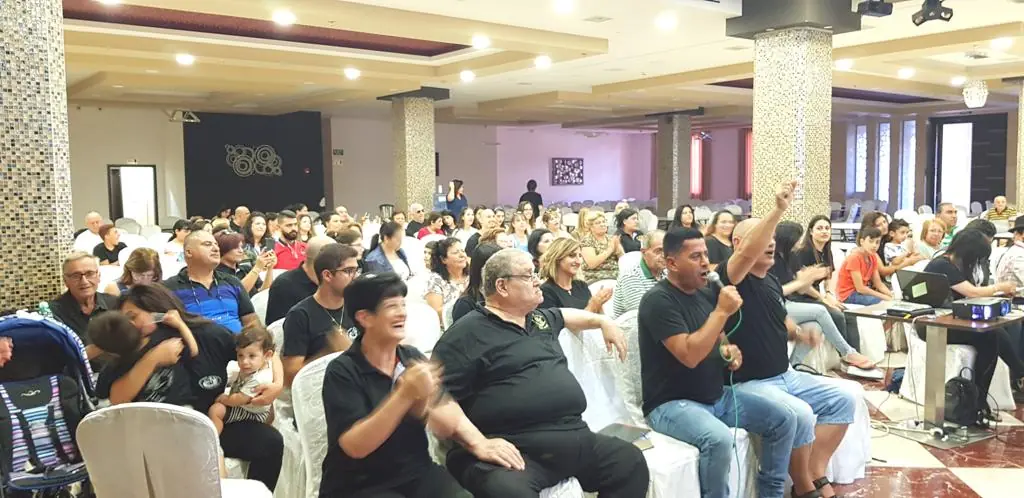
Saleem's church today
We began our church plant in our living room as a prayer meeting with seven people. It quickly grew and I knew we needed to move, but I was scared we would sign a lease and wouldn’t be able to pay rent and I’d end up in jail. For two months I ignored this leading from the Lord until my wife came to me one morning and said she had a dream of the place we were to move to. She insisted we go right away and look at it, and there is nothing you can say to a wife who wants something done right away. At least not my wife.
We drove through an industrial area and my wife pointed at an open shop and said, “Here!” As we stood in the doorway, I looked at my wife and told her, “You did not have a dream, you had a nightmare!”
The place was extremely run down and full of carpentry equipment and machinery. It would take so much time and money to clear the place out and renovate it. “Impossible” and “miserable” were words I used to describe the experience. And yet somehow, we worked day and night to clear the place out and fix it up. This became the facility for our church which we named Home of Jesus the King (since Nazareth was actually His hometown). Our church vision wasn’t just to have services in the place. We set up spaces for humanitarian aid distribution and we have prayer rooms for volunteers to come and pray for peace between Arabs and Jews.
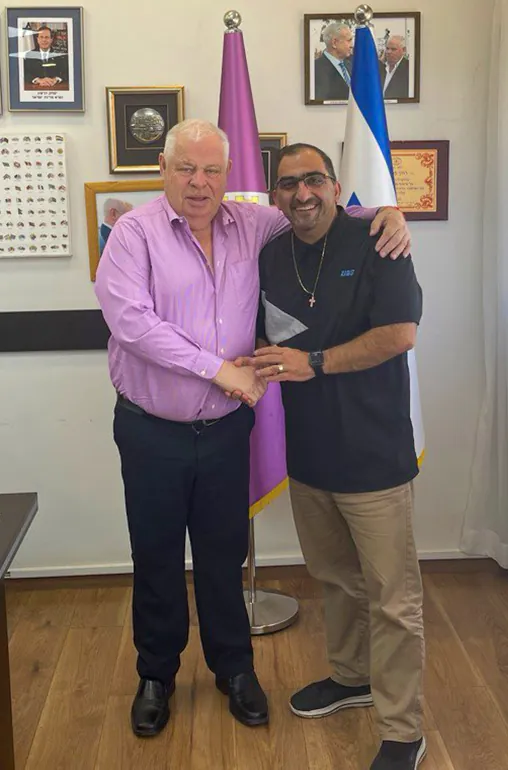
Saleem with Mayor Ronen Plot
Meet the Mayor
It was 2020 when COVID hit and the nation had strict restrictions. It was just before the time of the Passover and my wife and I were sitting at home and I suddenly felt strongly the Lord wanted me to bless His people. I knew doing anything during the COVID lockdowns would be tricky, so I told the Lord if this was Him I wanted to call the municipality before the hours they were supposed to be open at 8am and I wanted the Mayor himself to answer the main phone line and talk to me.
The next day I called at 7:30 in the morning and someone answered. I responded, “I’d like to speak with the Mayor Ronen Plot.”
“This is Ronen speaking,” he said.
I was so shocked I didn’t respond right away. “Hello, hello? You still there?” The mayor asked.
When I finally found my voice I told him, “I am an Arab pastor and the Lord had told me to bless His people and I want to donate 150 food boxes with matza and other items to Jewish families for the upcoming Passover.”
Now it was the mayor’s turn to find words to respond.
When he finally did, he said, “I don’t normally have people over because of COVID but I want you to come tomorrow morning and we will sit and talk in my office.”
The next day I came and we spoke for over an hour. When we finished speaking, he took me to a distribution facility where they make hot meals for the needy and where they would receive the materials we were donating. I was so focused on our conversation I didn’t realize the mayor had invited the local news channel to film the whole thing until that evening when my friend called me and said, “There is an article in the news about you entitled ‘Good things happen in bad times.’” From that time on we had many opportunities to help Jews—donating everything from blankets, to food and even electricity.
It is not unusual for Jews who we help to look at us in wonder not understanding why, as Arabs, we are helping them. I recently had a Jewish woman who fled Ukraine tell me, “I have heard about the Arab-Israeli conflict here, so I never expected to receive help from an Arab. I lost my husband in the war and I felt such a loss of hope. Your food packages are more than food to me, they give me hope in the future of our people in this land.”
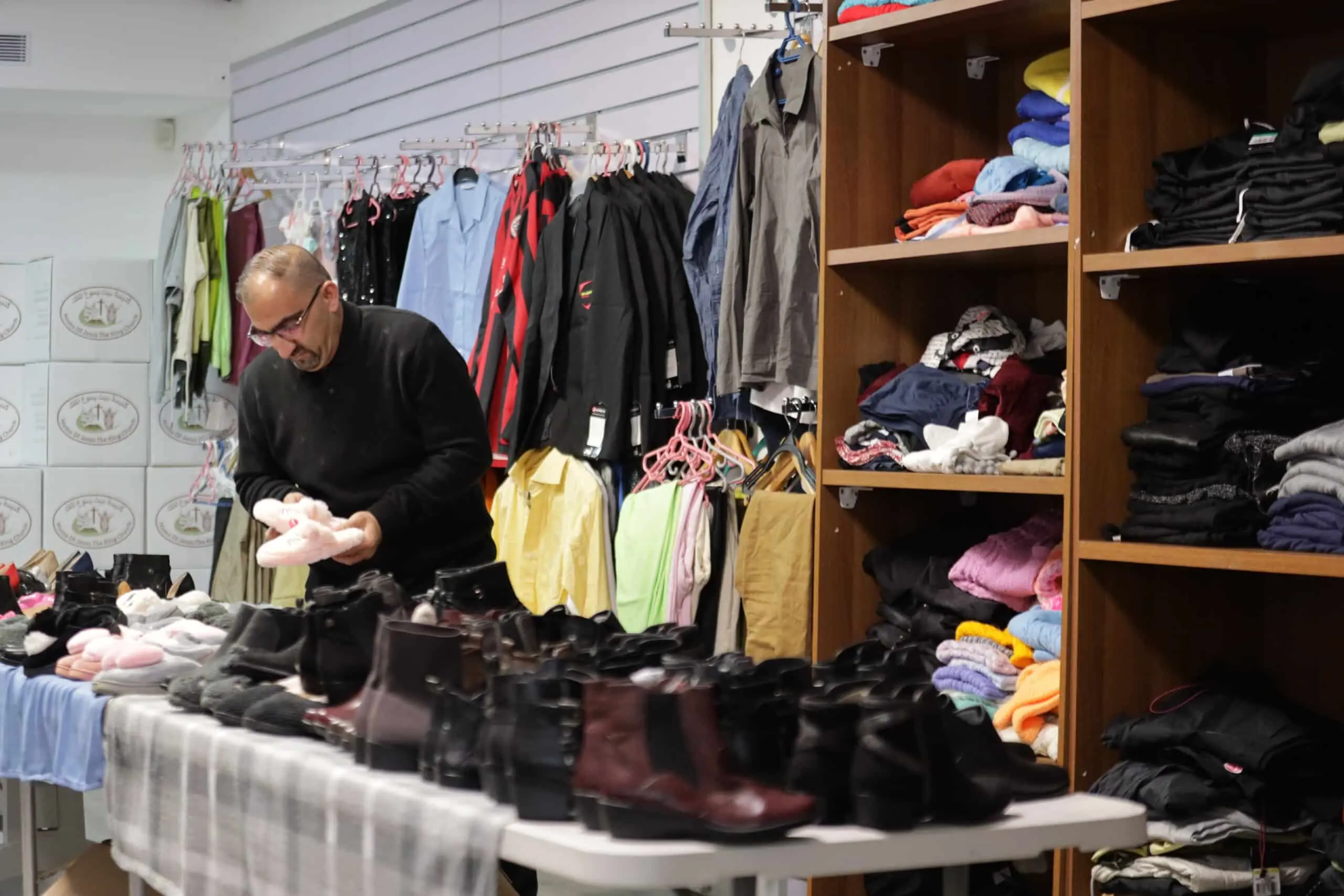
Saleem in the church’s distribution center
Oppression of Christians in Israel
30 years ago, Nazareth was somewhere around 60-70% Christian Arabs, and Muslims were the minority; today only some 25% are Christian Arabs. Similar statistics can be found in Bethlehem, which today is about 97% Muslim. So, while Arab media likes to paint a picture of Israel as the source of Arab suffering, at least for Christian Arabs, the oppression often comes from the dominating Muslim culture.
Still, the truth is, Israeli-Arab Muslims live better in Israel than they do in most other Muslim countries. As an Israeli-Arab, I enjoy freedoms I wouldn’t if I lived under the Palestinian Authority. I have friends who lived in the West Bank and Gaza who were “disappeared” for being Christians. Rami Ayyad is one of the more well-known cases. Hamas kidnapped him and cut him into pieces for the crime of owning a Bible book shop. That is something many outsiders don’t understand when they come against Israel in support of the Palestinian Authority. Christians will never be protected under their leadership.
It’s not a popular belief among Arabs because we don’t like to be dependent on Israel, but Yeshua said to the Jewish people, “You won’t see me again until you say, ‘Blessed is He who comes in the name of the Lord.’” So, whether we like it or not, Israel’s relationship with God affects us Christians, and as an Arab I believe I have a unique part to play in building bridges between our two people.
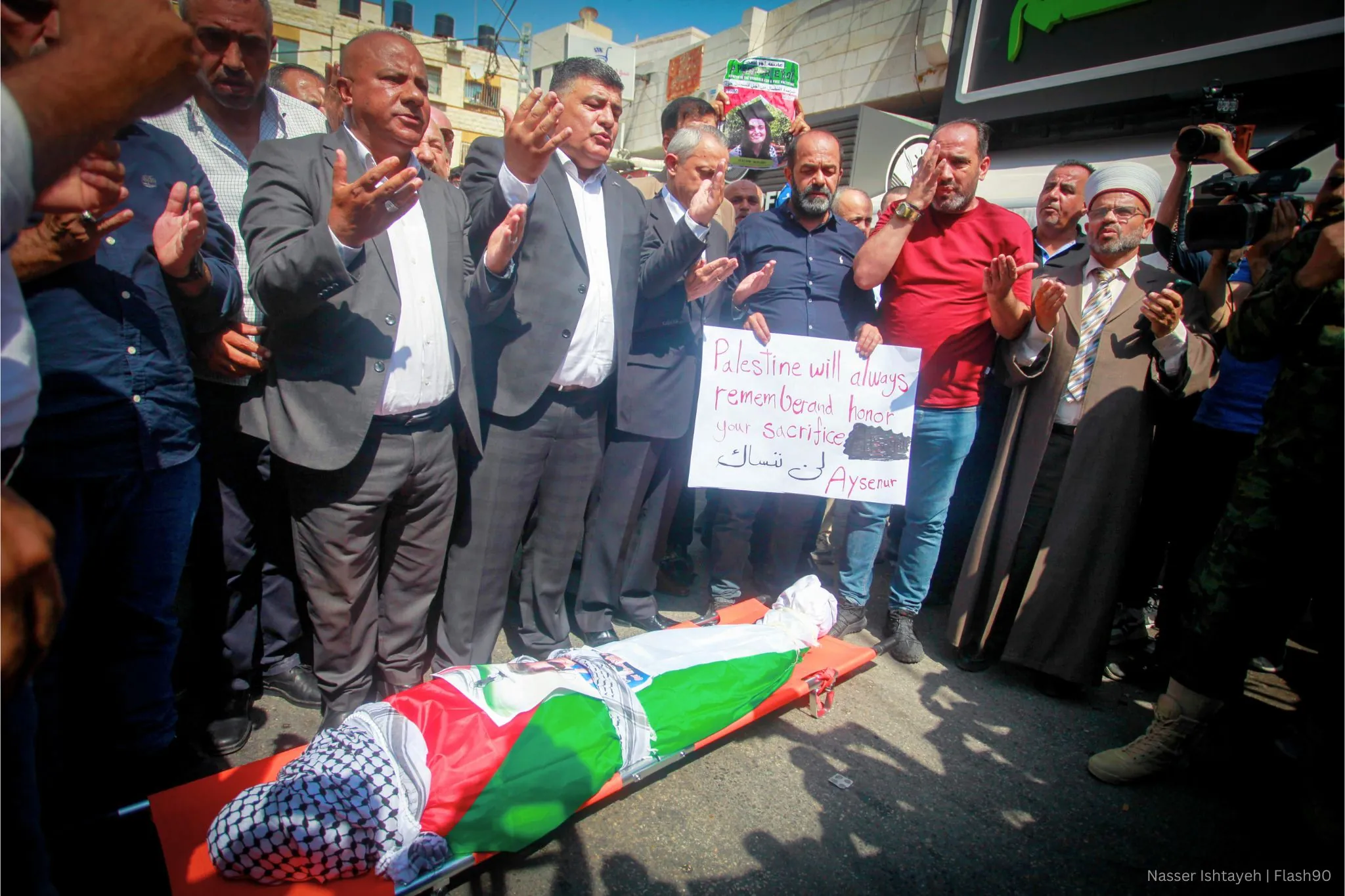
They aren’t Human Shields, They are Human Sacrifices
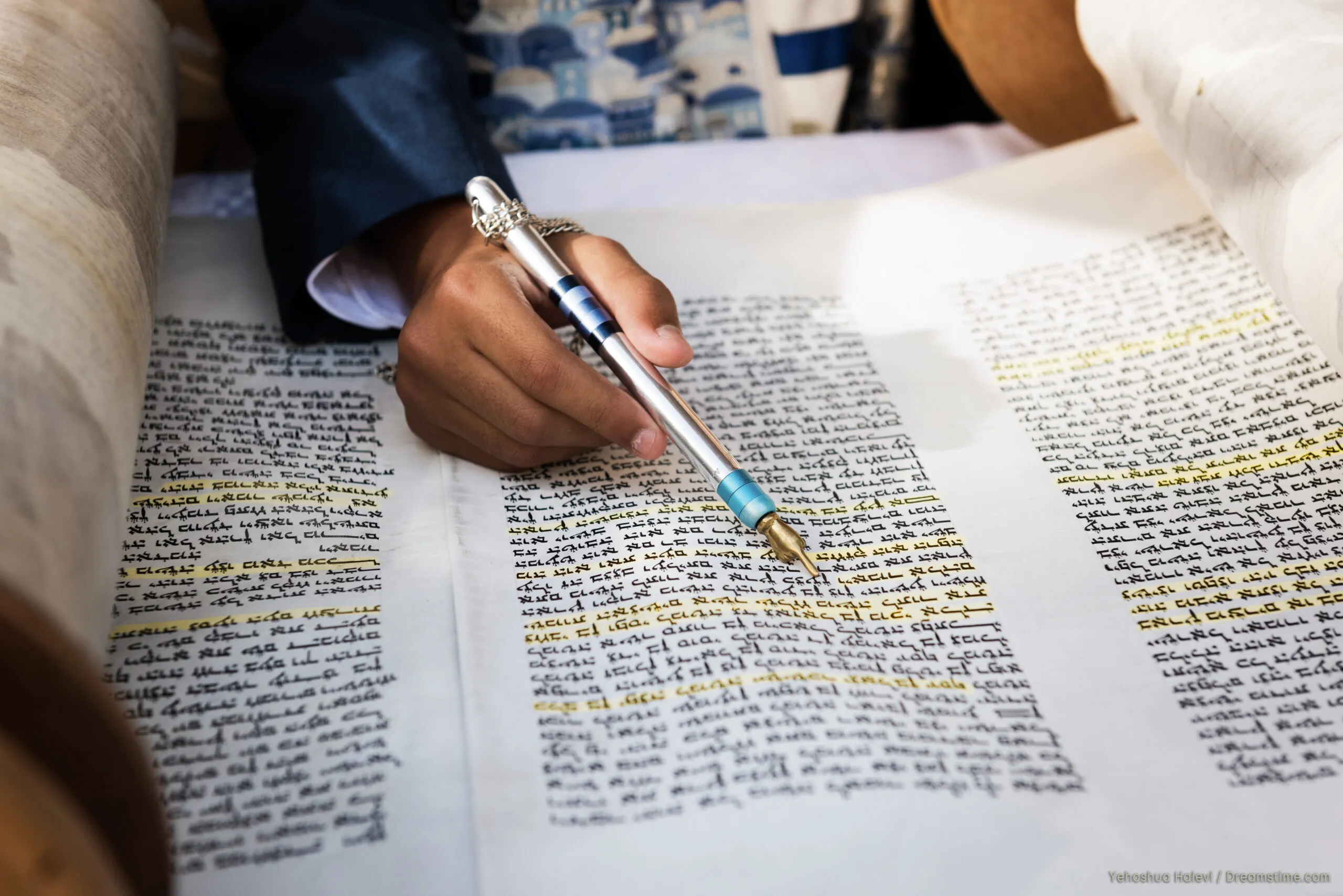
Connecting the Dots: Yeshua and the Hebrew Bible

Druze and Jews
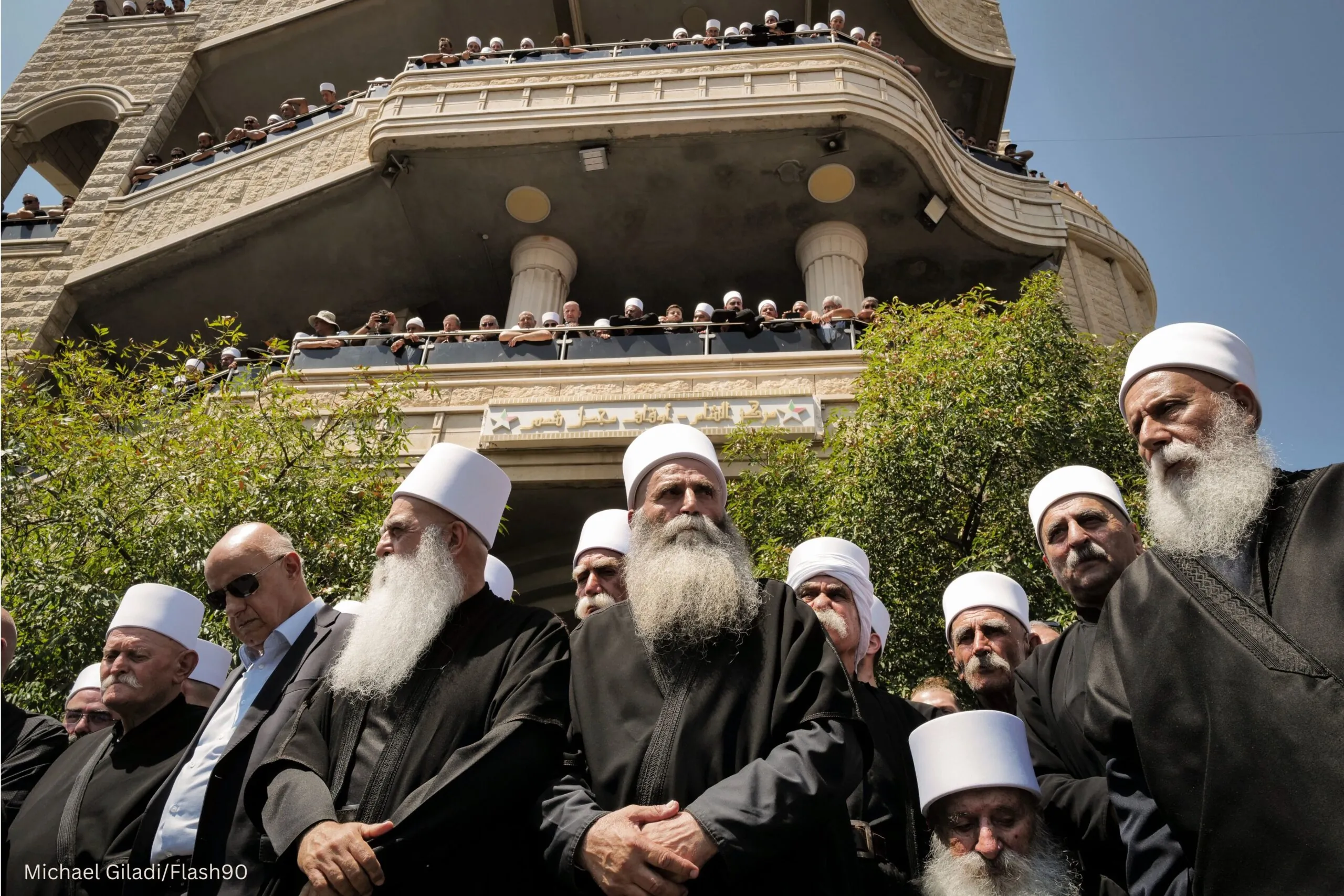
The Mysterious Origin of the Druze
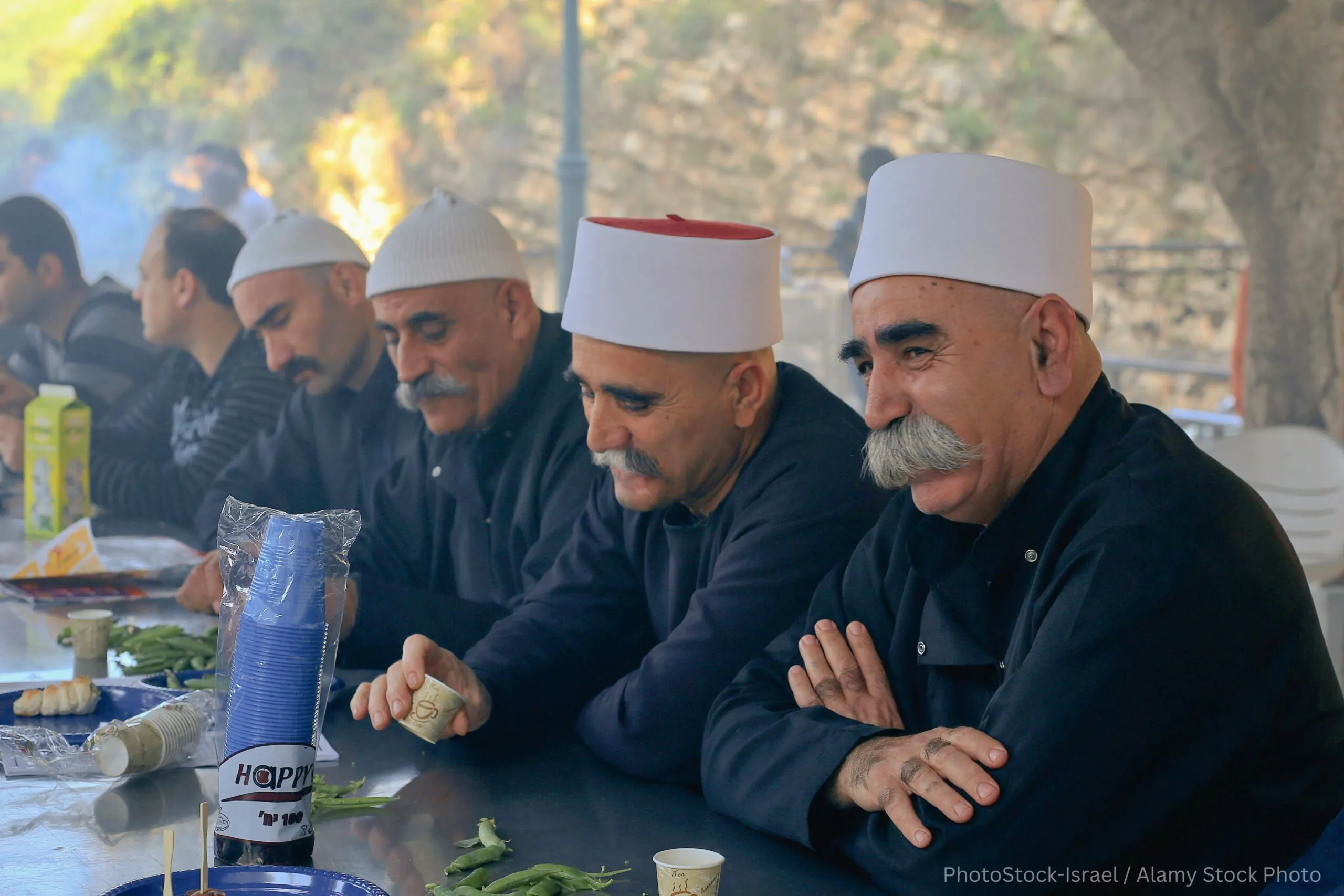
A Druze Family’s Leap of Faith
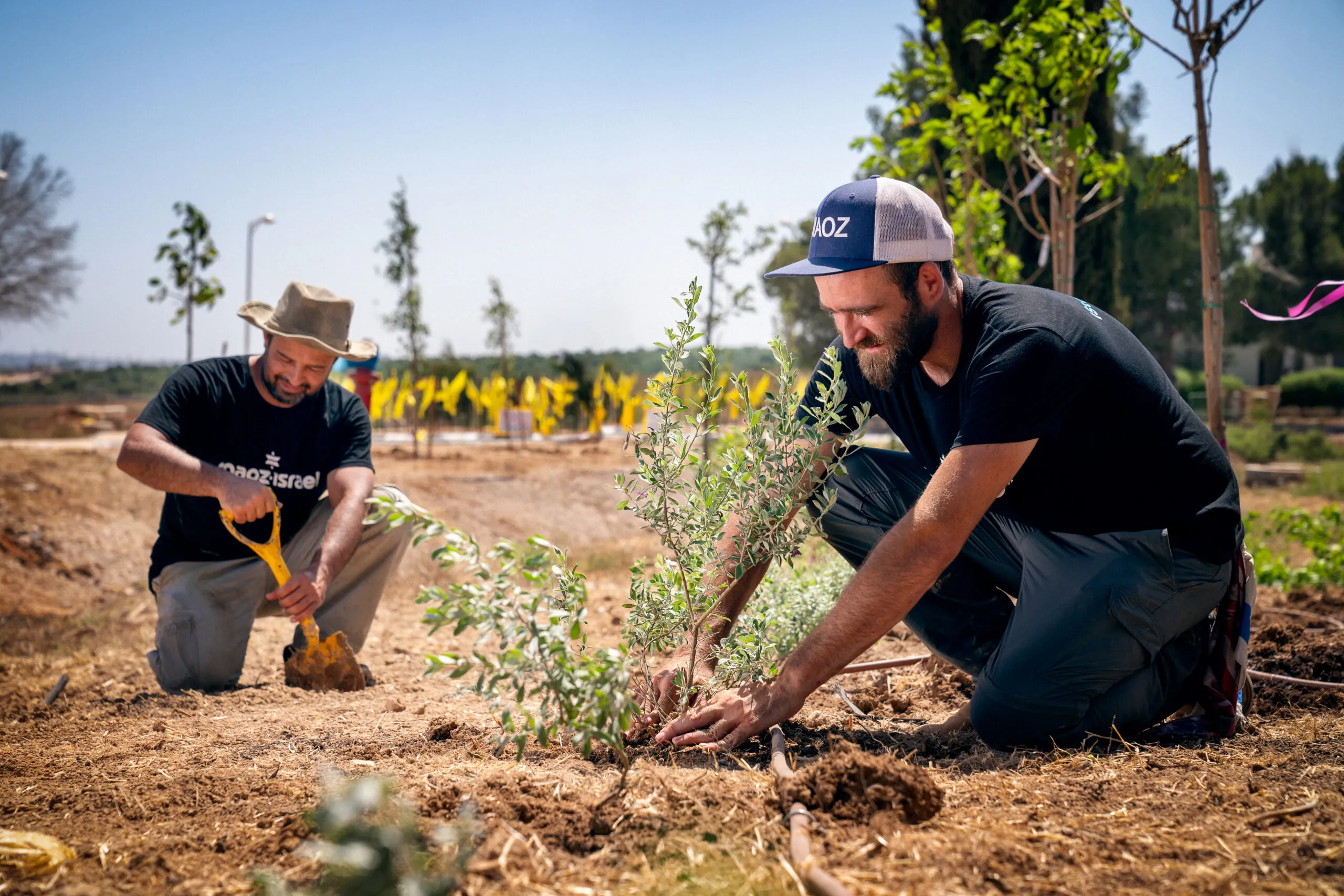
Making Israel Great Again
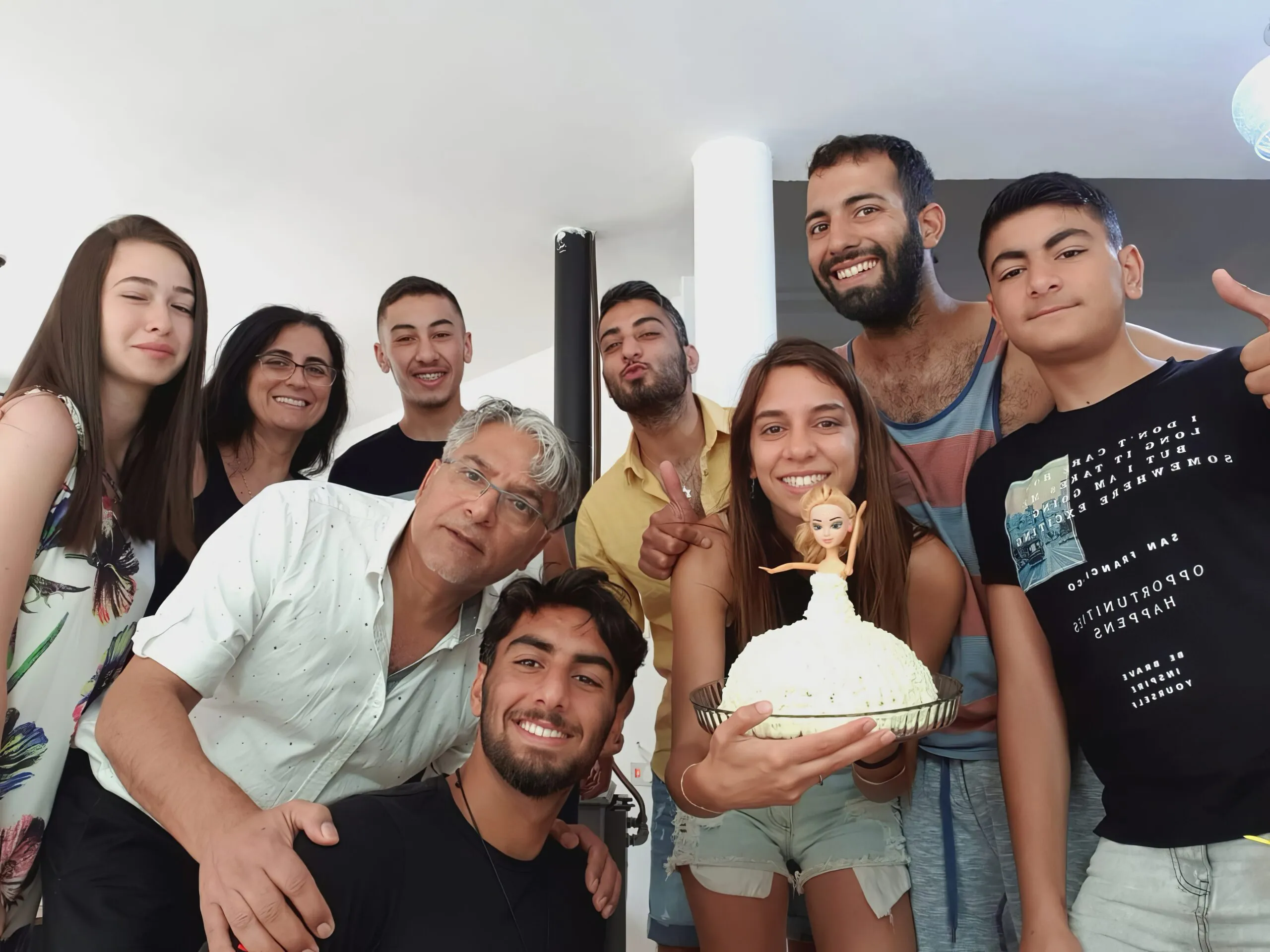
Rockets Hit a Home – Twice!
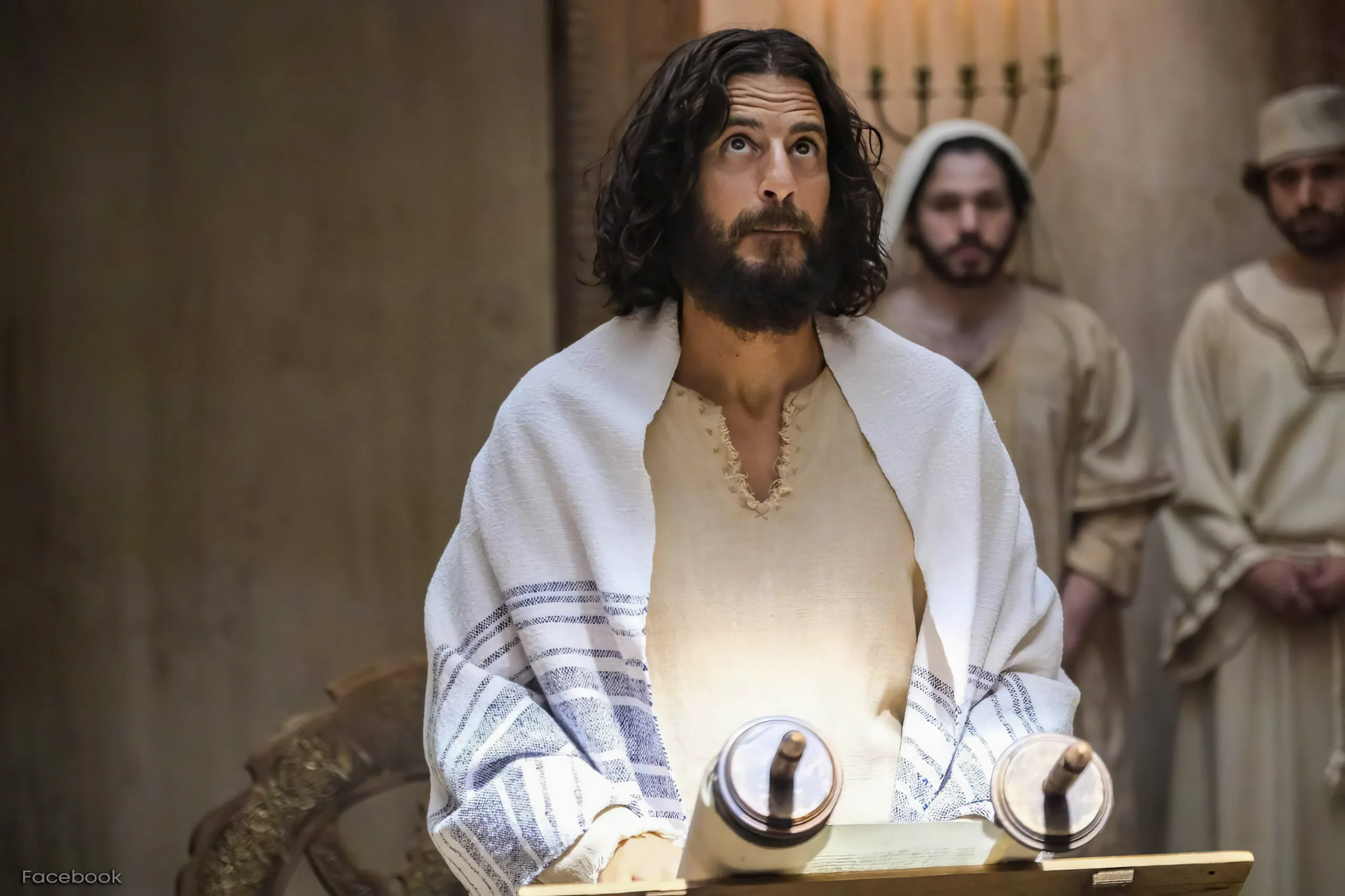
Christianity is a Jewish Covenant
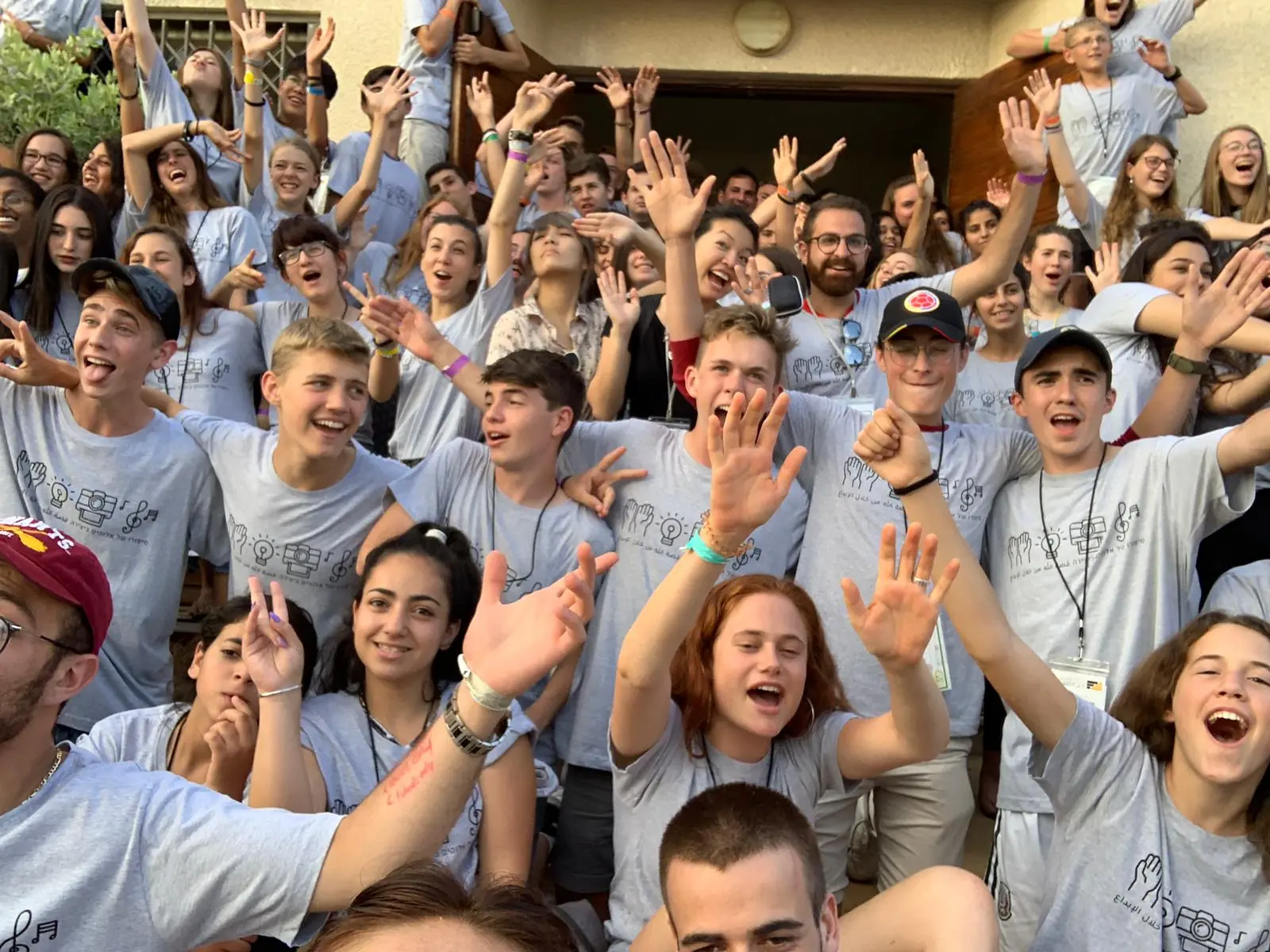
Shared Faith, Shared Future: Arab and Jewish Unity
